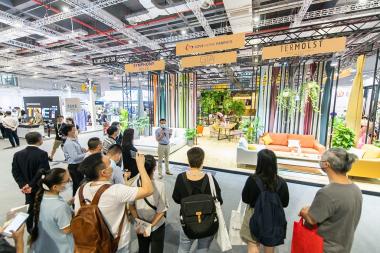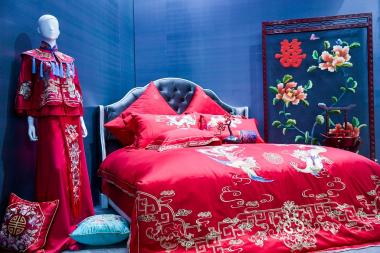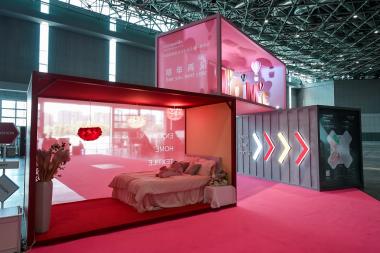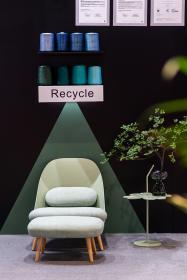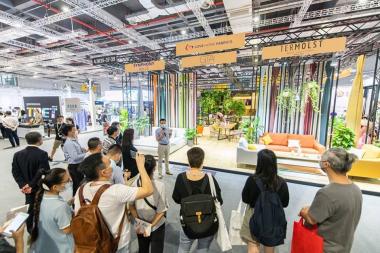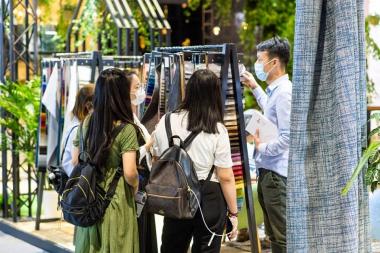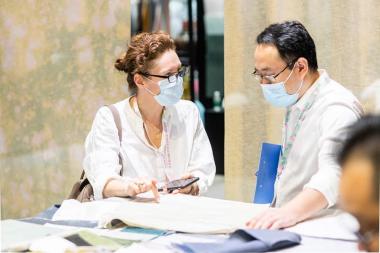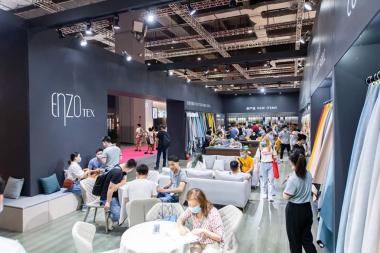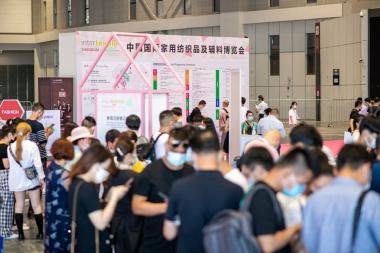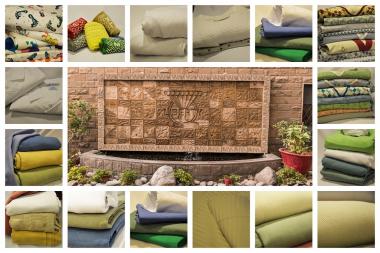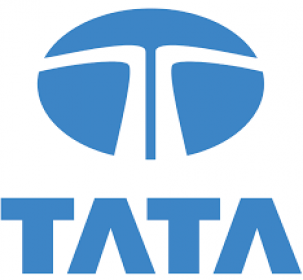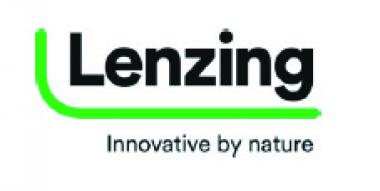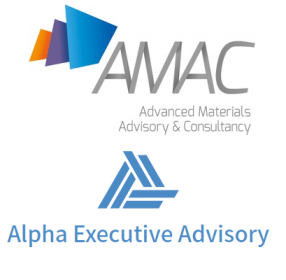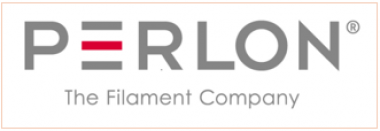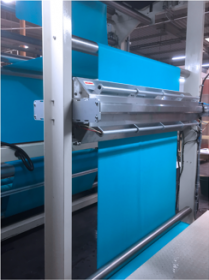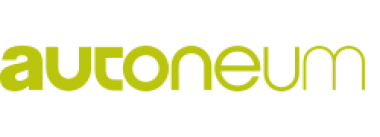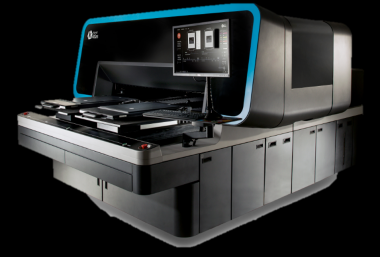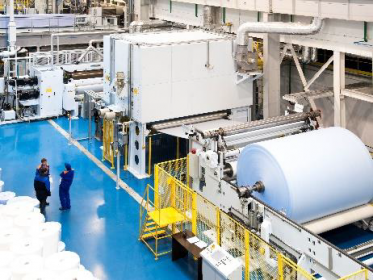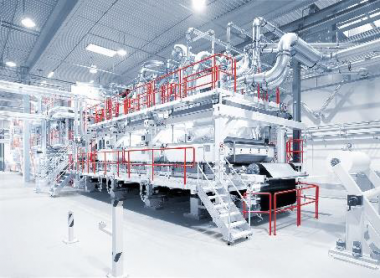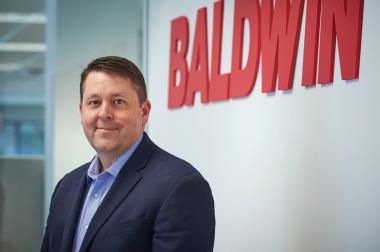Intertextile Shanghai Home Textiles 2020 concluded successfully: online and offline platforms met sourcing demands
The 26th edition of Intertextile Shanghai Home Textiles concluded on 26 August, following a successful three-day run at the National Exhibition and Convention Center (Shanghai). It was Messe Frankfurt’s first event to take place in Shanghai in 2020 following disruptions from the pandemic. Amid the challenges presented by the pandemic, this year’s fair provided a vital opportunity for the international home and contract textile industries to source and reconnect through virtual and in-person meetings. Offering a comprehensive range of home and commercial textile products, the fair welcomed over 600 exhibitors and attracted more than 25,000 trade buyers.
Speaking as the fair concluded, Ms Wendy Wen, Senior General Manager of Messe Frankfurt (HK) Ltd commented: “Intertextile has always been dedicated to providing an ideal platform for the international home textile industry and we are delighted to continue to do so during these unprecedented, challenging times. In view of the current global travel restrictions, this year’s fair offered a series of digital tools in addition to the traditional exhibition, allowing the fair to reach as wide an audience as possible. We are glad that this new format was highly recognised by the participating exhibitors and buyers alike.”
“Whilst economic activity in China is progressively recovering and domestic consumption continues to grow, the country’s exports are taking longer to rebound,” Ms Wen added. “One of the main objectives of this year’s fair was to connect domestic and international suppliers and buyers who are eager to make personal contacts and get back to business. As evidenced by feedback from numerous exhibitors and visitors, the fair has been able to help and support the industry’s recovery, so we are delighted with the results.”
Online business matching platform connected worldwide companies
In view of the current international travel restrictions, this year’s fair launched a brand new online business matching platform, which connected around 200 buyers from over 50 countries and regions to 60 exhibitors. The platform introduced multiple new functions, such as live-stream product presentations and a real-time chat platform to better facilitate business exchanges between suppliers and buyers from around the world. One exhibitor participating in the platform was Suzhou Roufang Textile Technology Co Ltd. “Yesterday we had a live-stream product presentation, which attracted around 200 buyers. The online platform is useful for us as we could showcase our new products and design concepts to overseas buyers, and let them know that we are still here to serve them,” the company’s Business Manager Ms Yu Qian Ru explained.
Mr Azam Osman, Manager of the Factory Depot (Pty) Ltd from South Africa expressed his satisfaction about the online platform: “I am glad that the fair provided the online business matching service where I have seen a lot of quality furniture and decorative fabric exhibitors. I’m interested in connecting with them.” Another buyer, Ms Elena Freyuk from Ziptown Trading Inc. said: "I am pleased that the fair offered both live-stream and video recording product presentations as I was unable to watch the live presentation due to time difference. The services were very thoughtful!”
A source of inspiration for the industry
To ensure fairgoers can discover the latest design and industry trends and insights, this year’s fringe programme presented a series of high quality events, covering the industry’s hottest topics. Some of the highlights included the 2021 Intertextile Trend Forum, which was led by Shen Lei, the Chinese representative of the Intertextile International Lifestyle Trend Committee. The forum brought together five prominent Chinese designers including Ben Chen, Ben Wu, Meng Ye, Paul Pang and Xie Ke, who presented an in-depth interpretation of the theme of 2021 Intertextile Trends, “BOUND”. Other events included Ride the Storm – Home Textile Digital Printing Forum, Tmall Seminar on industry digitalisation, Furniture & Home Textile Direct Negotiation Event and more.


